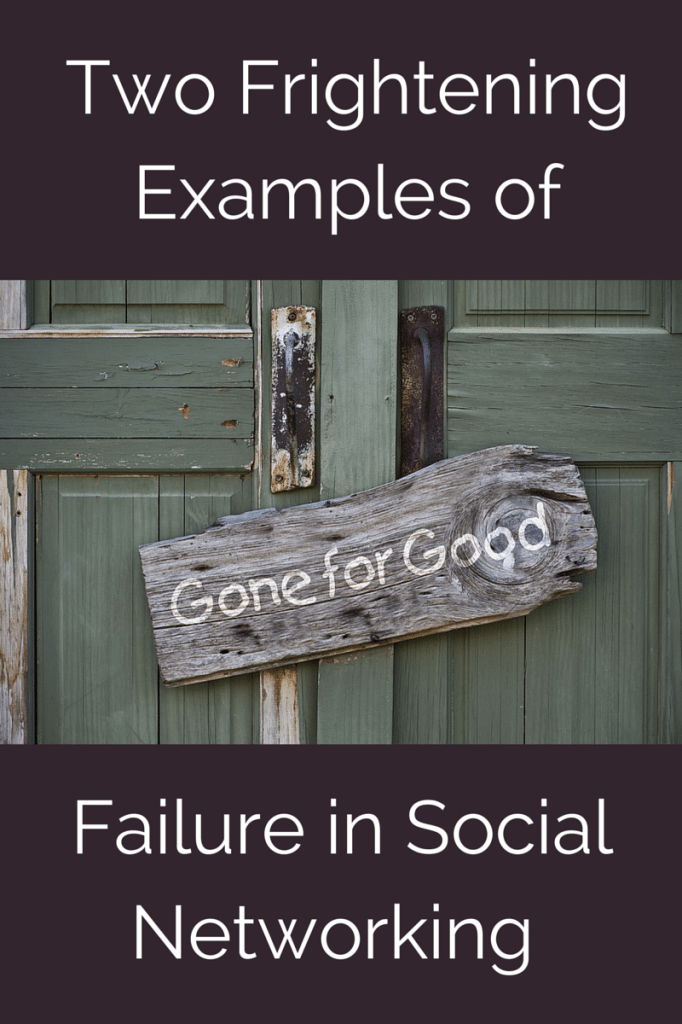 What we say and do speaks volumes about us. Our words and actions tell the story of what it’s like to do business with us. Social channels are ideal for leveraging our network to “promote” good intentions and tell the story of our personal brand. But here’s the thing about social media: everything you say and do creates a perception in your customers’ minds. If you don’t want to be a failure in social networking, shouldn’t your image be a positive one?
What we say and do speaks volumes about us. Our words and actions tell the story of what it’s like to do business with us. Social channels are ideal for leveraging our network to “promote” good intentions and tell the story of our personal brand. But here’s the thing about social media: everything you say and do creates a perception in your customers’ minds. If you don’t want to be a failure in social networking, shouldn’t your image be a positive one?
Having been an advocate and practitioner of Social Selling (using Social Media to sell yourself and your product/service) for over 5 years now, I regularly look for outstanding examples from within my network. On my quest, I come across many negative examples too. In fact, the ratio is about 10 to 1, negative to positive. I hope we can turn that stat upside down in the coming years.
It is natural to be negative. Negativity gets more airplay.
As Homosapiens, and as Louise Leakey so beautifully points out in her TED Talk, we constantly make frightening choices. Her father, Dr. Richard Leakey, noted paleoanthropologist and archaeologist:
“We are most certainly the only animal that makes conscious choices that are bad for our survival as a species.” ~Dr. Richard Leakey, January 2008
I’ve discovered two frightening examples of failure in social networking (aka: Social Selling) that illustrate this fact. As you read these, visualize the players standing in a room full of people who are within earshot. This should give you a better context from which to observe it and serve to embody how cringeworthy it would be if you were on receiving end of these remarks in real life.
Social Sales Suicide by Facebook
A Facebook friend of mine (we’ll call her Mary) shared an image on Facebook talking about how one political party had voted against equal pay for women. Sure the post was political and I always recommend refraining from the “Big 3” (politics, sex and religion) in social situations, including social media. The following is an excerpt of the comments section below her post from her “friends” who happen to be car salespeople (their names have been changed to protect the insolent):
George: “Yawn, trying to help you understand how things work in politics is quite daunting. You are aware of the tactics used to ensure the conservatives had to vote against this reform, aren’t you? Of course not. What was I thinking.”
Mary replied: “No, its not. I understand perfectly.”
Mark: “Gerry, why are you arguing with this idiot? Seriously! You’re above this.”
George: “That’s a bit over the top don’t you think Mark? Mary has many views similar to ours yet she persists in thinking……”
Mark: “Not at all. I have seen many of her posts. She is an idiot. Anyone who re-posts anything from the {media source} is an uninformed moron. The {media source} is nothing but misinformation and hyperbole.”
Many people seem to think that hateful, rude and borderline misogynistic rhetoric is okay on social networks. Regardless of your political stance, as a representative of your company and your personal brand, this is not how you want to be perceived, is it?
Facts:
- 85% of vehicle purchase decisions are influenced by women (women-drivers.com)
- 45% of new vehicles are purchased by women.
Result of witnessing these remarks:
- Reinforcement of the stereotype that car salespeople can’t be trusted.
- Significantly limited sales potential. You have no idea how many people saw this post.
Social Sales Suicide by Social Spam
I welcome new people who follow me on Twitter. I have a process for following them back that’s simple: once you follow me, I look at your profile and your tweets. If what you tweet is valuable to me and/or my audience, I will follow you back. I’m a consumer just like you so I track my thoughts and actions and compare them to how prospects might behave.
Recently, a person followed me. He had a little over 1,000 followers and he was a marketing guy. I thought, “Well, maybe you’ve got something interesting to say or to learn from.” so I followed him. I had never heard of him before his follow.
Fifteen minutes after my follow back, I got a DM (Direct Message) from him saying that he “Noticed a few things on my website that are hurting your conversion ratio. Let me know if you’d like some feedback.”
The result? His behavior established that his effort to connect with me was simply to sell me something.
What goes through a customer’s mind when they’re subjected to this behavior?
- “I don’t know you!”
- “Anyone can reach out and tell me what you told me.”
- “What’s different about you?”
- “I don’t know anything about you except one thing: I learned that you are a Social Spammer.”
There’s more to the story…
Thirty minutes later this Social Spammer sought me out on LinkedIn and requested to connect with me.
Again, I don’t know you. I don’t know anything about you. Why would I do that? What’s in it for me?
If he’d put himself in the prospect’s shoes and explored answers the above questions, he might not have spammed me. Maybe he’d have spent a little time politely and respectfully getting to know the prospect (and thereby letting the prospect get to know him).
When you begin a relationship without giving value, there is no reason for a prospect to connect with you because:
- You look like the hundreds of others who’ve said the same thing; the same sales pitch.
- There’s nothing in it for me.
Here’s what we advise our clients to do:
- Always approach your prospects with respect for their time and attention.
- Determine exactly who you want to network with and publish content that attracts those ideal customers and/or referrals.
- Never forget WIIFM (What’s In It For Me). If someone doesn’t know you, they won’t connect with you simply because you asked. Give them a reason to connect:
- You’re different than anyone else because….
- You were first to bring value to the relationship.
Show up to give. Giver’s gain.
It’s in my nature to reply to people who’ve taken the time to reach out. Had that spammer given me a reason to reply, I would have. But he took his eye off the ball. He was only thinking about himself and his sale.
There’s no reason on earth that you need to experience failure in social networking. Please, before you hit send, ask yourself, “Would I follow or buy from me based solely on this one post?”
